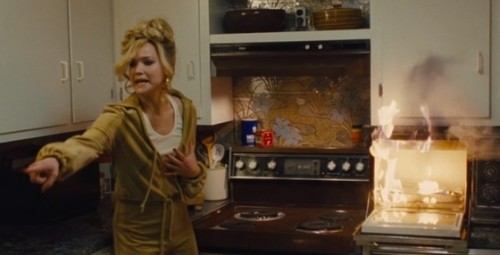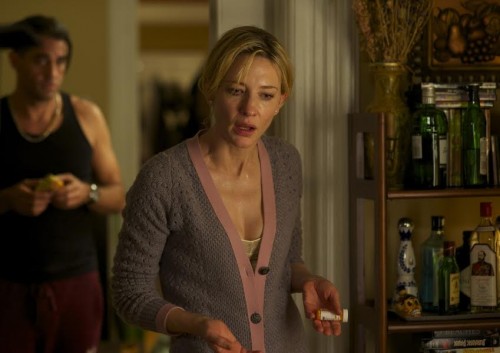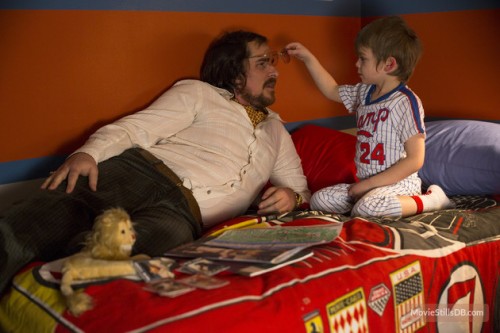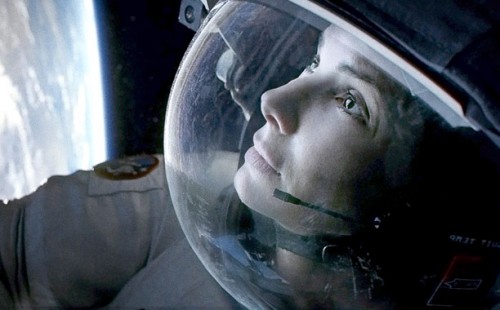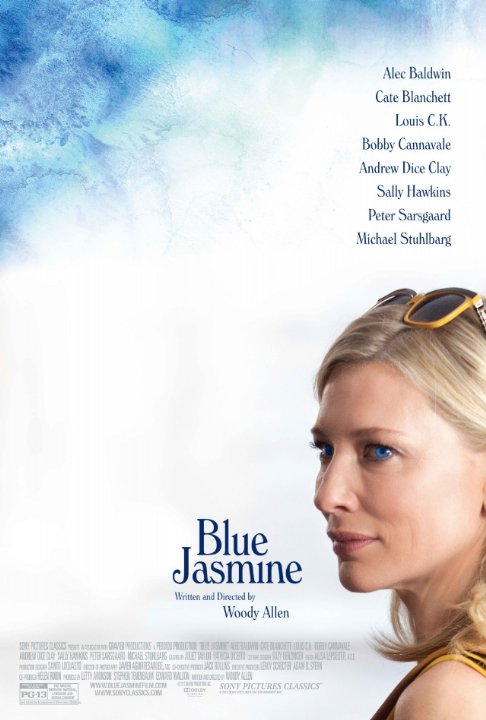This is a guest post by Kelsey Rauber.
For a very long time, women who didn’t want to have children were deemed “selfish,” because — well, I’m not quite sure why. Men, however, although maybe a disappointment to their mothers, weren’t really labeled anything. They were bachelors, at worst.
In many movies, the struggle that men have is not a result of a decision involving kids. But in most romcoms and dramas, if there is a female role of a certain age, it centers upon the subject of children.
I wanted to look at three current movies and their depiction of parents, particularly how their children influence their decision making and where the children fit into their lives.
I chose to examine three movies where the lead was nominated for Best Lead Actress in 2014 and in a fertile age range, which led to the movies Blue Jasmine, American Hustle, and Gravity.
As I told a friend about the idea of this article, she immediately interjected: “But it’s not just film! It’s across the board!” She proceeded to name at least four of her very good female friends, whose husbands travel a lot, while they hold a full time job as are the primary person responsible for the child’s well-being. Is this still justified in a world where nearly two-thirds of women are the primary breadwinner of the household?
(May contain some spoilers.)
Blue Jasmine by Woody Allen
Jasmine, recently widowed, with no kids of her own but a stepson that no longer speaks to her, makes a good case for child-free living. Her husband cheated on her and embezzled lots of money. To top it all off, her mental health is questionable.
Blue Jasmine, as a movie, feels like a possible realistic take on women–who they can be, how they can fail and the choices that they make. Jasmine, obviously blinded by wealth, doesn’t quite understand what it means to care about other people.
On the other hand, we have Jasmine’s sister, Ginger, who is probably the truest depiction of an underpaid, divorced woman that I have seen in a movie in a long time. The supporting role is her role in life.
She works hard (in a grocery store), doesn’t get out often (hasn’t been to a party in years), and looks for love in all the wrong places because she was never made to believe that she is worthy.
She and her ex-husband share custody of their two boys, but the boys live with their mother. The one thing I find most fascinating about her: She doesn’t complain. She has her life and she lives it. She isn’t unhappy. As far as she’s concerned, she is doing her best and it is good enough.
None of the men that either Jasmine or Ginger date throughout the movie comment on having kids.
American Hustle by Eric Warren Singer and David O. Russell
Though I wasn’t a huge fan of this movie as a whole, it is interesting in its different take on the paternal role. Here, it is actually the protagonist, Irving Rosenfeld, who makes a sacrifice for his adopted son. When an FBI agent busts Irving and his partner in crime/mistress, Sydney, she proposes they pack and leave the country. Irving isn’t willing to do it, because he feels a strong sense of responsibility toward his son.
Irving’s wife, Rosalyn, is depicted as a pretty terrible mother. She constantly blows things up seemingly out of sheer boredom. She’s also portrayed as an alcoholic, which fuels her inability to take care of her child (which is her full-time job).
What is interesting here is that the viewer walks away with a feeling that Irving is a good dad. I’m not saying he is a bad father, he clearly cares about his son, but the information that we don’t get in the film is how long he disappears for when he is with his mistress— he manages to have a whole other life with Sydney. I can’t help but feel that this movie sets the viewer up to feel a certain way toward the father/son relationship, even though we really only know part of the story.
If they decided to make a sequel to this movie about the boy, I think we’d see that there is no hope for this kid; his male role models are his adoptive father, a crook, and his mom’s new boyfriend, who works for the mafia.
Gravity by Alfonso Cuarón and Jonás Cuarón
Gravity is easiest to discuss given its confinement to two main characters. The viewer is left alone with two strangers for more than two hours, so inevitably things get personal.
Ryan Stone, a medical engineer, specialized in hospital scanning systems and is on her first mission in space. She gets stranded with Matt Kowalski, who is on his final mission, about to retire.
Very early in the movie, Ryan opens up about her deceased daughter: “She was playing tag—she slipped, hit her head, and that was it.”
This revelation sheds some light on Ryan’s passivity. Any loss of this magnitude would change a person’s perspective on life. The viewer is left to wonder, who was Ryan before the loss of her daughter? Was she fun and optimistic? Was she absent a lot because of her job? Would she be in space right now if her daughter was still alive?
Matt, like most Clooney characters, is a recently divorced, childless, charismatic individual. He doesn’t open up about why he doesn’t have kids. The question is never posed.
I can’t help but wonder, if Matt would’ve been replaced by a female character, would the fun, charismatic individual, who knows the ins and outs of space, not fight a bit harder to save both their lives, rather than sacrificing her own life for a woman who doesn’t give anyone the impression there’s much to live for?
I’m usually fan of movies that defy stereotype. (Un)fortunately, it still seems like a niche quality, mostly found in Indie films.
All of these movies were written by men and some depict women better than others. Generally, women are given great jobs, great flaws, and a human touch, which is great since… you know, we are human.
What does it mean to not have children, or not want them as a woman? Where can we get answers to these questions? My first response would be: Not Hollywood.
My interest in this topic erupted from my recent diagnosis with PCOS, which is one of the leading causes of infertility in women. I’m also gay, so the thought of having children had already been slightly complicated.
I don’t know if I want kids. I do know that I’d like the option.
After consulting with family and friends, I took an interest in the portrayal of parenthood, as well as the absence of normalcy surrounding not being a parent for women in Hollywood movies, which led to this article as well as the short we are crowdfunding for, titled We Had Plans.
The production company I work with, CongestedCat Productions, drives content with a less generic, more realistic take on individuals whom are usually forced into a box based on gender, sexuality, race, etc. We portray people as people and expect our audience to look at them that way and relate to them on an emotional level. We don’t do caricatures or stereotypes. If this is something you can get behind, we are making films you’ll want to see.
Kelsey Rauber is a New York City-based screenwriter and an integral member of CongestedCat Productions. She was named Grand Prize Winner in the comedy division for her feature About a Donkey by the 2012 New York Screenplay Contest. That same screenplay was also a semi-finalist in the 2013 LA Comedy Shorts Festival. She is the writer and co-creator of the comedic web series Kelsey, which premiered on blip.tv in September 2013 to rave reviews and consistent press coverage, being named a Critic’s Pick and one of the best comedy web series of 2013 by Indiewire. She is currently crowdfunding on Seed&Spark for her next projects.
